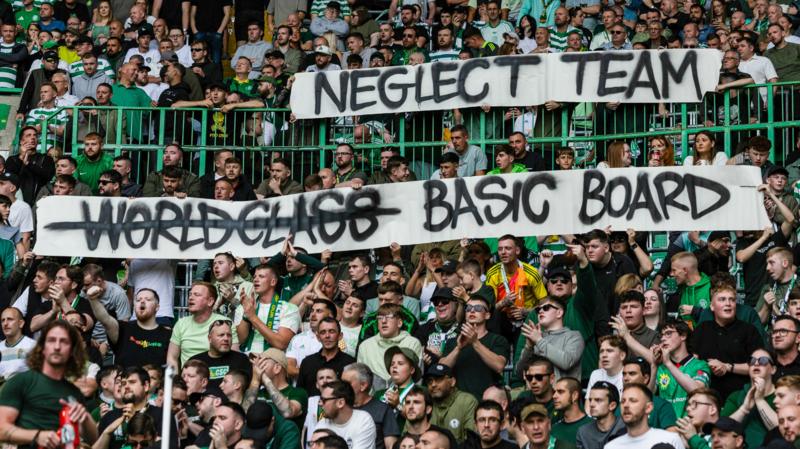Celtic Crisis: Angry Fans, Upset Manager, Weakened Team - What Went Wrong?




Amidst the lush green fields and reverberating chants at Celtic Park, a storm seems to be brewing. The fervor of Celtic FC's loyal fanbase has taken a distinct shift from celebratory anthems to disgruntled murmurs. With the squad seemingly weaker than in preceding seasons, the air is thick with discontent, notably pointing towards a series of decisions that have not sat well with the supporters and the manager alike.
The heart of the discontent lies in what many perceive as mismanagement in player transactions during the offseason. Celtic, a club steeped in history and tradition, have always been expected to make power moves, keeping them competitive both domestically and in European football. However, this season's transfer strategy appears to have deviated from those expectations, leaving gaps in a squad that once boasted depth and talent.
Manager Brendan Rodgers, who has been at the helm during more fruitful times, has openly expressed his frustration. His ambitions for the club clearly involve being competitive on all fronts, and his dissatisfaction stems from what he views as an undermining of the team's ability to compete. Rodgers, known for his tactical acumen and player development skills, now faces the challenging proposition of navigating the season with a squad that lacks the reinforcements necessary to meet his high standards.
The concerns are not unfounded. The departure of key players, who have not been adequately replaced, is the crux of the issue. Last season, Celtic saw a balance of experienced stalwarts and blossoming young talents garnering them significant successes. Contrastingly, this season, the exodus of seasoned players and the perceived underinvestment in quality replacements have left fans and pundits questioning the direction and ambition of the club's management.
Traditionally, Celtic’s strength has been built on a robust scouting network, capable of bringing in hidden gems and nurturing young prospects into star players. This approach not only kept the wage bill in check but also ensured a pipeline of talent ready to step up. However, with tightening purse strings and a more cautious approach in the transfer market, this strategy seems to have faltered this season. This pivot has been hard to digest for the supporters, who are used to seeing their club dominate the Scottish Premiership and make respectable advances in European competitions.
The backlash from the fans is a culmination of growing apprehensions about losing ground to rivals, particularly Rangers, who have been bolstering their squad impressively. The Old Firm rivalry, which is deeply ingrained in the fabric of Scottish football, adds an intense pressure to stay competitive. Fans fear that the current situation could tilt the scale in favor of their age-old adversaries, hence the heightened outcry.
Moreover, the sense of unity and collective stride, which has been a hallmark under Rodgers' earlier tenure, now seems slightly askew with the internal discord between the management's strategic vision and the manager's operational needs. Communication between the club's executives and the technical staff will be key in aligning objectives and rectifying the course to avoid a season that falls below the lofty standards Celtic is synonymous with.
As the season unfolds, all eyes will be on how Rodgers maneuvers through these challenges with tactical adjustments and perhaps more reliance on the club's youth prospects. The January transfer window will also be pivotal for Celtic to address the gaps and possibly recalibrate their aspirations for the rest of the season.
For the fans at Celtic Park, the grind never stops and their voices never fade. It's this undying passion that they hope will be matched by a renewed vigor within the club's decision-making corridors, ensuring that the legacy of Celtic FC not only endures but flourishes.